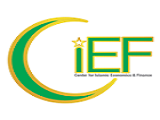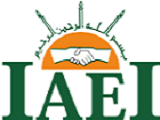The Sharia Fintech Product on Bank Performance during COVID-19 Pandemic
Abstract
Throughout the COVID-19 epidemic, the Fintech sector has continued to increase access to financial services, especially in developing nations. This study aims to look at how Indonesian Sharia banks' performance is affected by Sharia fintech products (FTPs). Sharia fintech products are a combination of financial and technological innovations that can facilitate customers' transactions and investment processes based on rules and Islamic law so that customers intend to use the Sharia fintech products and then perform well in the bank. This study used 250 Sharia bank customers given self-designed questionnaires as part of our data collection. This study looked at the fictitious relationship, and the results reveal that FTPs have a considerable impact on bank performance, as indicated by the path coefficient and t-value using correlation regression analysis. The study's findings perspectives on how convenient Sharia fintech products (FTPs) are for users. Clients are more receptive to FTPs when they see their use and simplicity in everyday tasks and work. The study's conclusions show that bank performance is positively and significantly impacted by Sharia fintech products of financial transaction platforms (FTPs). Also, the COVID-19 epidemic hastened changes in how people engage with financial services, leading to a hitherto unheard-of demand from poor countries to accelerate their transition to open and safe digital money.
Keywords
Full Text:
PDFReferences
Adamko, P., Spuchľáková, E., & Valášková, K. (2015). The history and ideas behind VaR. Procedia Economics and Finance, 24, 18-24.
Andespa, R., Yeni, Y. H., Fernando, Y., & Sari, D. K. (2023). A systematic review of customer Sharia compliance behaviour in Islamic banks: determinants and behavioural intention. Journal of Islamic Marketing.
Baltar, F., & Brunet, I. (2012). Social research 2.0: virtual snowball sampling method using Facebook. Internet research.
Purnamasari, F., & Darmawan, A. (2017). Islamic Banking and Empowerment of Small Medium Enterprise. Etikonomi, 16(2), 221–230. https://doi.org/10.15408/etk.v16i2.5355
Gomber, P., Koch, J.-A., & Siering, M. (2017). Digital Finance and FinTech: current research and future research directions. Journal of Business Economics, 87(5), 537-580.
Gretzel, U., Fuchs, M., Baggio, R., Hoepken, W., Law, R., Neidhardt, J., . . . Xiang, Z. (2020). e-Tourism beyond COVID-19: a call for transformative research. Information Technology & Tourism, 22, 187203.
Haddad, C., & Hornuf, L. (2019). The emergence of the global fintech market: Economic and technological determinants. Small business economics, 53(1), 81-105.
Hudaefi, F. A., Hassan, M. K., & Abduh, M. (2023). Exploring the development of Islamic fintech ecosystem in Indonesia: a text analytics. Qualitative Research in Financial Markets, 15(3), 514-533.
Koutras, A., Panagopoulos, A., & Nikas, I. A. (2017). Forecasting tourism demand using linear and nonlinear prediction models. Academica Turistica-Tourism and Innovation Journal, 9(1).
Laksana, R. D., Hersugondo, H., WAHYUDI, S., & MUHARAM, H. (2017). The New Decomposition Asset Growth Effect. An Empirical Evidence of Indonesia. Journal of Applied Economic Sciences, 12(4).
Lee, D. K. C., & Teo, E. G. (2015). Emergence of FinTech and the LASIC Principles. Journal of Financial Perspectives, 3(3).
Li, F., Lu, H., Hou, M., Cui, K., & Darbandi, M. (2021). Customer satisfaction with bank services: The role of cloud services, security, e-learning and service quality. Technology in Society, 64, 101487.
Leong, K., & Sung, A. (2021). FinTech (Financial Technology): what is it and how to use technologies to create business value in fintech way? International Journal of Innovation, Management and Technology, 9(2), 74-78.
Mawardi, W., Mahfudz, M., Laksana, R. D., & Shaferi, I. (2020). Competition and financial effects between Islamic and conventional banking. WSEAS Transactions on Business and Economics, 17, 101-111.
Milian, E. Z., Spinola, M. d. M., & de Carvalho, M. M. (2019). Fintechs: A literature review and research agenda. Electronic Commerce Research and Applications, 34, 100833.
Nguyen, Q. K. (2022). The effect of FinTech development on financial stability in an emerging market: The role of market discipline. Research in Globalization, 5, 100105.
Nordstokke, D. W., Zumbo, B. D., Shelly, B., Carr, M. J., Gray, N. L., Holley, M. J., . . . Cooner, D. Journal of Educational Research & Policy Studies.
Pennington-Gray, L. (2021). Reflections to move forward: Where destination crisis management research needs to go. Tourism management perspectives, 25, 136-139.
Ratecka, P. (2020). FinTech—definition, taxonomy and historical approach. Zeszyty Naukowe Małopolskiej Wyższej Szkoły Ekonomicznej w Tarnowie(1 (45)), 53-67.
Saputri, O. B. (2020). Pemetaan potensi indonesia sebagai pusat industri halal dunia. Jurnal Masharif Al-Syariah: Jurnal Ekonomi Dan Perbankan Syariah, 5(2).
Vučinić, M. (2020). Fintech and Financial Stability Potential Influence of FinTech on Financial Stability, Risks and Benefits. Journal of Central Banking Theory and Practice, 9(2), 43-66.
Wójcik, D., & Cojoianu, T. F. (2021). A global overview from a geographical perspective. Int. Financ. Centres after Glob. Financ. Cris. Brexit, 207.
Yudaruddin, R. (2023). Financial technology and performance in Islamic and conventional banks. Journal of Islamic Accounting and Business Research, 14(1), 100-116.
Yumna, A. (2019). Examining financial needs of banking customers for product development in Islamic banking in Indonesia: A Maslahah pyramid approach. International Journal of Islamic and Middle Eastern Finance and Management, 12(5), 712-726.
DOI: http://dx.doi.org/10.24042/ijebi.v8i2.16521
Refbacks
- There are currently no refbacks.
Copyright (c) 2024

This work is licensed under a Creative Commons Attribution-ShareAlike 4.0 International License.
Ikonomika : Jurnal Ekonomi dan Bisnis Islam is a Journal of Islamic Economics and Business, Published by the Faculty of Islamic Economics and Business at UIN Raden Intan Lampung Indonesia. This work is licensed under a Creative Commons Attribution-ShareAlike 4.0 International License.






11.png)



.png)
1.png)
.png)
.png)
.png)
2.png)
.png)
.png)
.png)